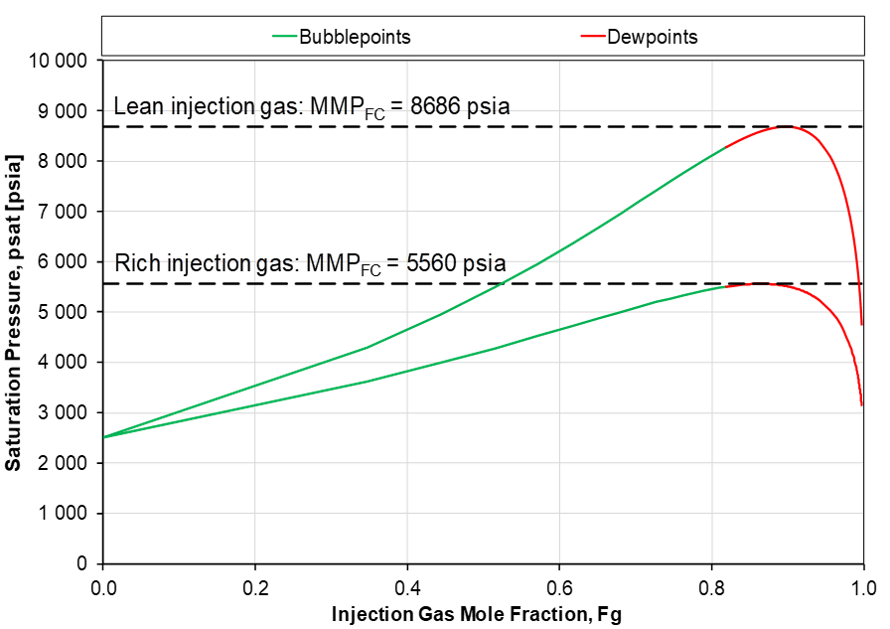(Coming Soon) Minimum Miscibility Enrichment (MME) Module
In this module, minimum miscibility enrichment by first contact (\(MME_{FC}\)) and multi-contact (\(MME_{MC}\)) are calculated. The data required is:
- Reservoir fluid composition (generated with any of the available methods)
- Reservoir temperature
- Injection gas composition
- Enrichment gas composition
- MMP target
Minimum Miscibility Enrichment (MME)
Minimum miscibility enrichment is defined as the minimum quantity of additional components, such as intermediate-chain gases or CO2, that must be added to an injection gas to reach the minimum miscibility pressure with a reservoir fluid at a given temperature and pressure. The MME for multi-contact (MC) and first-contact (FC) is different. Another term for MME is "minimum miscibility concentration".
2.2. Miscibility
In petroleum engineering, we consider two types of miscibility: first-contact miscibility (FCM) and multi-contact miscibility (MCM). First-contact miscibility is relevant for the gas huff-n-puff (HnP) method, while multi-contact miscibility is relevant for displacment processes.
2.3. First-Contact Miscibility
At a given pressure and temperature, first-contact (FC) miscibility refers to the process in which two fluids mix in all proportions – at any concentration of either fluid – such that the resulting mixture remains a single phase. This is the formal, text-book definition of “miscibility”. In petroleum systems, we use the term first-contact miscibility pressure (FCMP) to define any pressure at which the injection gas and reservoir fluid mix on first contact (in any proportion), forming a single phase. The minimum first-contact miscibility pressure (\(MMP_{FC}\)) is obtained from a swell test, defined as the maximum pressure on a p-x diagram (saturation pressure vs. mol% injection gas); shown in the figure below, for a rich and a lean injection gas.

2.4. Multi-Contact Miscibility
In a conventional displacement process, miscibility between a reservoir fluid and an injection gas develops through a dynamic process of mixing, with component exchange controlled by phase equilibria (K-values) and local compositional variation along the path of displacement. In such a process, the injection gas and reservoir fluid are said to be multi-contact miscible (MCM). Multi-contact (dynamic) miscibility investigates the mixtures that form as a result of interaction of phases with different compositions flowing at different velocities in a porous medium (Jessen & Orr, 2008).